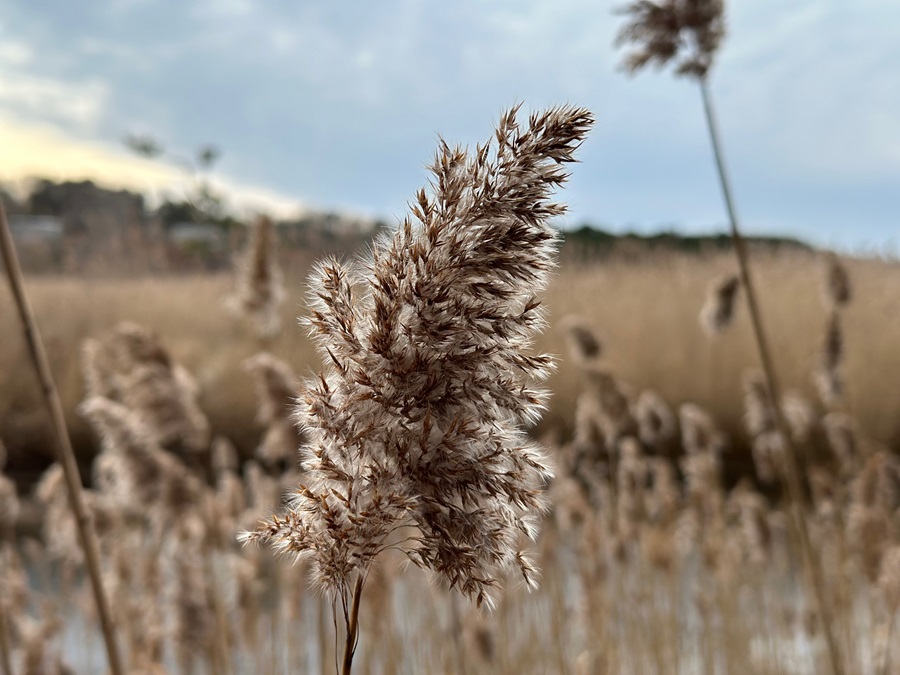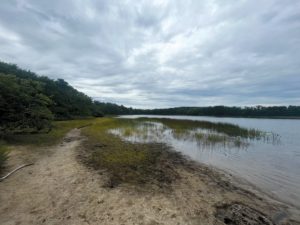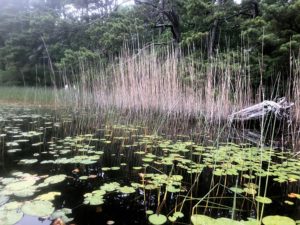
The view across a Cape marsh in winter can be downright lyrical, with beautiful, spacious skies and amber waves of Phragmites australis, the invasive common reed. Soaring up to 20 feet high, Phragmites and the sky above might be all that you see, depending on your vantage point, like the obstructed view of the Pamet River from 20 Truro Center Road, pictured here. Native to Europe and Asia, P. australis forms dense patches in our bogs, marshes, and ponds that block out all other vegetation, including shorter native grasses, reducing an anthem of biodiversity to a chorus of one. Invasive in almost every state, the common reed is a nationwide ecological nuisance — from sea to shining sea, if you will. —Joe Beuerlein


